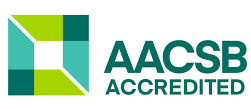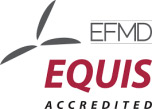Program Curriculum
EDBA601 Research Methodology I
 |
|
||||
Course Synopsis
The first part of the course examines two methods of approaching research, namely qualitative research and behavioral research. Topics covered include the criteria for valid and reliable research, the advantages and disadvantages of different research strategies, electronic and paper tools for searching literature, research methods - observational, survey, experimental, general writing techniques, writing style, data analysis, and data presentation.
This course introduces students to the field of research. It examines in depth the research process and introduces doctoral candidates to the various aspects of doing scientific research, providing practical advice and insight in the field. Topics covered include hypothesis formulation and theory construction, data collection techniques, ethical issues in research, and research design.
This is a very practical course aimed to guide participants through the work that lies ahead
Learning Objectives and Outcomes
At the end of this course students will be able to:
| • | distinguish amongst the different types of research; |
| • | be aware of the tools used and their relative roles and reliability; and |
| • | to review the steps to be undertaken in the research design, writing, and the steps in publishing the results. |
EDBA602 Project Management
 |
|
||||
Course Synopsis
How can your organization, culture and governance sustain Effective Project Management.
The environment in which a project evolves and the constraints it generates on the project can have a significant impact on its objectives, sometimes more than the risks inherent to the project.
It is important for a project manager to be able to understand these constraints, but it is even more important for a company managing project portfolios to ensure that its organization, its governance rules and its cultural context favor effective project management.
The objective of this course is to study organizational and governance impacts on project management by covering the following topics:
| • | Different types of organizations and respective impact on project management; |
| • | How to interface project’s world with organization's world? OBS (Organization Breakdown Structure) – RBS (Resource Breakdown Structure) – RACI Matrix); |
| • | Expected role of a Project Manager and a PMO; |
| • | Key elements of project and portfolio governance; |
| • | Impact of organization’s culture on project management: Cultural Change Model. |
Theoretical notions will be illustrated through a case study focusing on “Sonaca’s way to increase its projects maturity”.
EDBA603 Management of Organizations
 |
|
||||
Course Synopsis
The course is designed to help students analyze and understand how modern organizations are structured and work in practice. The following variables are examined: organizational structure, processes and workflows, division and coordination of work between operators along key processes, departmentalization, liaison mechanisms between units, decision-making processes, authority and power relations, power games, institutional goals and objectives, formal and informal communication flows, contextual influences on organizational choices, organizational configurations, etc.
Constructed mainly according to an analytical logic, the course aims to make students aware of the diversity of contemporary organizations and the importance of taking managerial actions that correspond to the specific reality of each institution, whether private companies or public bodies.
Learning Objectives and Outcomes
The objectives of the course are:
| • | theoretical (introducing the major debates and contemporary issues in organizational theory); |
| • | analytical (development of students' ability to carry out complete and detailed organizational diagnoses); |
| • | normative (raising the students' awareness of the importance of taking managerial actions that correspond to the specific reality of each organization). |
EDBA604 Research Conference I
Course Synopsis
A conference is a gathering of researchers and/or professionals in a given field wherein scholars present their ideas and engage in discussion and critical interaction with other experts and peers.
The core component of EDBA conferences is the presentation of new research in the form of papers and/or presentations.
| • | It is common for there to be major presentations by "keynote” or “plenary" speakers who are respected experts at the top of their game in the field or discipline. These sessions are designed to draw an audience from the entirety of conference attendees. | ||||
| |||||
| • | Smaller presentations, usually with more specified topics of discussion and smaller audiences, offer other researchers the chance to present and test their discoveries and insights. | ||||
| |||||
Presentations at conferences are often followed by questions and discussion between presenters and their audience
Commonly, either a selection of the papers or all the papers of a conference will be edited and published as "Conference Proceedings" subsequent to the conference.
EDBA605 Research Methodology II
 |
|
||||
Course Synopsis
The second part of the course will examine the fields of quantitative and econometric research. Topics covered include scientific methods, cognitive guidelines, quantification and standardization in survey research, reconciling practical and scientific requirements for creating valid and unbiased surveys. Part two will examine research tools and applied econometrics, regression analysis, estimation procedures, hypothesis testing, time series modeling, and forecasting. Additional emphasis will be put on the process of rigorous formation of research questions and research design.
Learning Objectives and Outcomes
At the end of this course the student will be able to:
| • | distinguish between the different methods of collecting, analyzing data and the research techniques to be used for optimum results; |
| • | examine a wide range of concepts and methods for observing, interviewing, recording and analyzing field data shall be covered; |
| • | manipulate quantitative and qualitative methods or research; |
| • | examine and demonstrate the ethical considerations in qualitative research practice; and |
| • | gain solid understanding of statistical tools used in empirical analysis and will allow the participants to develop solid analytical skills. |
EDBA606 Strategic Intelligence Design and Innovations
(The content will be available soon)
EDBA607 Financial Economy
 |
|
||||
Course Synopsis
The course in Monetary and Financial Economics covers monetary theory and policy (Prof. Lionel Artige) as well as the management of financial institutions (Prof. Danielle Sougne). The program consists of 2 parts:
Part 1 (Lionel Artige): Monetary economics
| • | Money and the money market |
| • | The demand for money |
| • | The money supply: money creation |
| • | Interest rate |
| • | formation Monetary policy |
| • | Financial crises |
Part 2: The Foreign Exchange Market (Danielle Sougne)
| • | Introduction to the Foreign Exchange Market |
| • | The different exchange rate regimes |
| • | Determination of exchange rates |
| • | Cryptocurrency |
The objective of this course is to acquire knowledge in economics and finance in order to understand the working of the financial markets.
EDBA608 Research Conference II
Course Synopsis
A conference is a gathering of researchers and/or professionals in a given field wherein scholars present their ideas and engage in discussion and critical interaction with other experts and peers.
The core component of EDBA conferences is the presentation of new research in the form of papers and/or presentations.
| • | It is common for there to be major presentations by "keynote” or “plenary" speakers who are respected experts at the top of their game in the field or discipline. These sessions are designed to draw an audience from the entirety of conference attendees. | ||||
| |||||
| • | Smaller presentations, usually with more specified topics of discussion and smaller audiences, offer other researchers the chance to present and test their discoveries and insights. | ||||
| |||||
Presentations at conferences are often followed by questions and discussion between presenters and their audience
Commonly, either a selection of the papers or all the papers of a conference will be edited and published as "Conference Proceedings" subsequent to the conference.
EDBA609 Dissertation
 |
|
||||
Course Synopsis
An original, academic written product of the systematic study of a significant problem that follows a coherent methodology, independent research and comprehensive thinking. An appropriate organisation and documentation is part of it. A supervisor (typically a local faculty member) accompanies and discusses the student's work, closely checks the progress and takes on academic responsibility.
Learning Objectives and Outcomes
At the end of this course the student will be able to:
| • | to critically analyze in depth a research topic of interest related to the modules of the EDBA program in the field of business and/or management; |
| • | demonstrate a profound understanding of the theoretical concepts and frameworks in relevant literature that supports and forms the basis of the main arguments and hypotheses of their dissertation; |
| • | demonstrate competency in designing, collecting, analyzing, interpreting and presenting researched data in a systematic manner and to a professional standard; |
| • | demonstrate the ability to approach the dissertation arguments from a wider context and to be able to provide unambiguous and convincing evidence to justify and sustain such arguments to its conclusion; and |
| • | learn and grow by deepening their self and social awareness in their multiple roles as a business researcher and leader. |
EDBA610 Research Conference III
Course Synopsis
A conference is a gathering of researchers and/or professionals in a given field wherein scholars present their ideas and engage in discussion and critical interaction with other experts and peers.
The core component of EDBA conferences is the presentation of new research in the form of papers and/or presentations.
| • | It is common for there to be major presentations by "keynote” or “plenary" speakers who are respected experts at the top of their game in the field or discipline. These sessions are designed to draw an audience from the entirety of conference attendees. | ||||
| |||||
| • | Smaller presentations, usually with more specified topics of discussion and smaller audiences, offer other researchers the chance to present and test their discoveries and insights. | ||||
| |||||
Presentations at conferences are often followed by questions and discussion between presenters and their audience
Commonly, either a selection of the papers or all the papers of a conference will be edited and published as "Conference Proceedings" subsequent to the conference.


